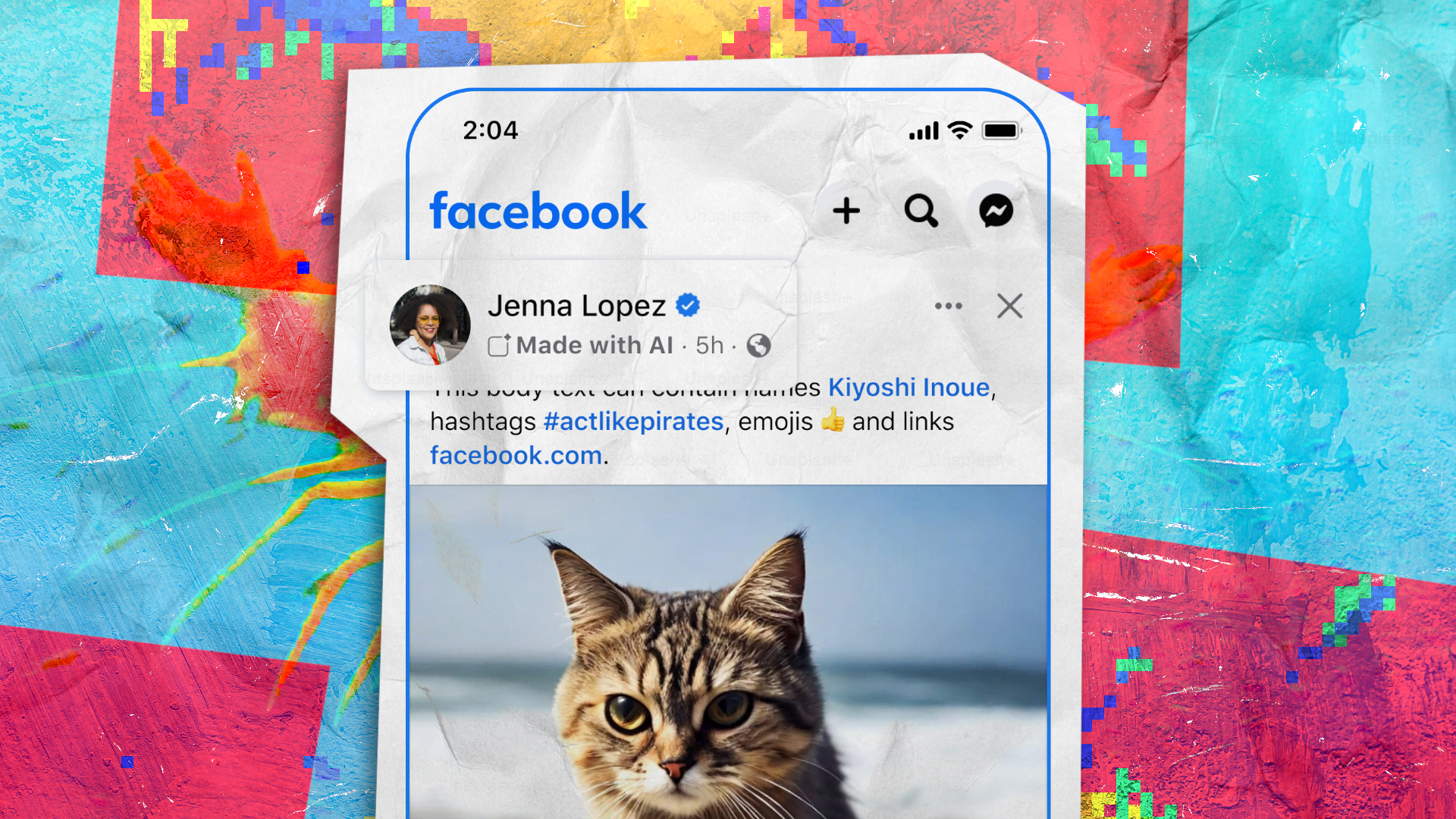
Facebook is a good place to keep up with your favorite bands — tour dates, photos, and the occasional video.
That's exactly how Australian teacher "Jake" used Facebook to follow Nick Cave and the Bad Seeds, the long-running rock group. After seeing a video of Cave promoting a sure-fire investment on Facebook in 2023, Jake felt comfortable following Cave's advice. As Jake put it, "I respect him greatly as an artist, so I’m, of course, thinking sh*t that’s put the icing on the cake."
Sadly for Jake, Cave's video wasn't real.
Within months, Jake had been scammed out of AUD 130,000. It's yet another scam horror story, this time using AI to trick people into trusting popular celebrity figures.
On February 6, 2024, Meta announced a change to how it labels content made with AI. The change came too late for Jake but could prevent AI fraud in the future.
Meta continued to evolve its AI-labeling policy throughout the year
The AI labeling feature, originally announced in February, consists of a text label above photos and videos detected to contain some amount of AI content, whether the entire image was made with AI or manipulated in part.
Meta tweaked its policy for labeling AI-generated content in several ways throughout the year.
A lengthy blog post titled "Our Approach to Labeling AI-Generated Content and Manipulated Media" was published in April and updated again in May, July, and September of this year:
• In April, Meta announced it would stop removing AI-manipulated content that didn't violate its Community Standards. At the same time, Meta also widened its policy for the types of content that would receive an AI label, such as video, audio, and photos.
• It clarified in May that it would label only "organic content," which is another way to describe user-generated content made with AI.
• Then, in July, Meta adjusted its course again and changed its AI label from "Made with AI" to "AI info," making the label more inclusive of edited or modified content with AI tools. More inclusive, yes, but also quite a bit more vague as to how AI was used.
• And in September, Meta announced it would hide the AI label by moving it to the post's menu if Meta technology determined the image was only modified — not wholly created — with AI. Users also have to apply an AI label to images they upload. "There may be penalties if you do not label content as required," reads a note on help.instagram.com. For accounts that generate revenue via the social platform, a so-called "shadow ban" for violating the AI labeling policy could crush a business.
Meta did not respond to several requests for comment on its changing policy sent by Laptop Mag.
Does labeling AI-generated content work?
Most people will probably agree that labeling AI-generated content is generally a good idea, even if only to prevent confusion or identify which image generator someone used.
Studies have shown that some phrases are more effective than others when labeling AI, mainly because many people are still unfamiliar with AI terminology.
Considering the threat AI-generated deep fakes pose, labeling AI content is a net positive, even if it may spoil the fun for people trying to pass off their AI-generated cat photos as the real deal.
Whether these labels will eventually successfully prevent the spread of misleading content remains to be seen. However, Meta's struggle to tackle AI-generated content on its platform, mainly when used by scammers, continues to be an issue.
A September 2024 investigation by WANF, an Atlanta TV news station, uncovered a string of AI-generated images of overseas-serving soldiers being used in profiles and pages to trick and scam Facebook users. One romance scam involved retiree Jeanne Wasserman being robbed of a similar $130,000 sum.
Meta continually updates the tool, tweaking its visibility and ability to detect AI-generated content. In the meantime, the risks persist.

If you're anything from an AI enthusiast to the average AI tinkerer (or simply seeking out some of the additional features offered through Windows Copilot+ PCs or Apple Intelligence on Macs), then you'll need a powerful and performative laptop to keep up to speed with your needs.
At Laptop Mag, we review laptops year-round to ensure we're giving you expert-backed and up-to-date recommendations on which notebook is right for you. When it comes to the best AI PC category, our top picks are the excellent Asus Zenbook S 14 (UX5406) for Windows users and the impressive Apple Macbook Air M3 for those running macOS.
So, if you're shopping for a new laptop and looking to invest in an AI PC (or just a great laptop in general), check out our current top-tier picks below.

We love the MacBook Air 13 M3. Starting at just $1,099 (MSRP), with education pricing dropping to $999 (MSRP), the Air is a laptop we can recommend for just about any purpose. It's affordable, especially by Apple standards, and it features an excellent keyboard, fantastic performance, and outstanding endurance (over 15 hours of battery life), which makes it a great laptop for just about anyone's needs, especially those interested in getting to grips with all of the latest Apple Intelligence features.

The Asus Zenbook S 14 (UX5406) has quickly become our favorite AI PC laptop of the year, offering all the hallmarks of a great buy, including exceptional performance and battery life. This laptop is one of the first to feature an Intel Core Ultra 200V series processor and at just $1,499 (MSRP), you get a fantastic balance of power, a stunning 14-inch OLED display, effortless multitasking, NPU-enhanced performance for AI tasks, and all of the additional Copilot+ features available with Windows 11.







